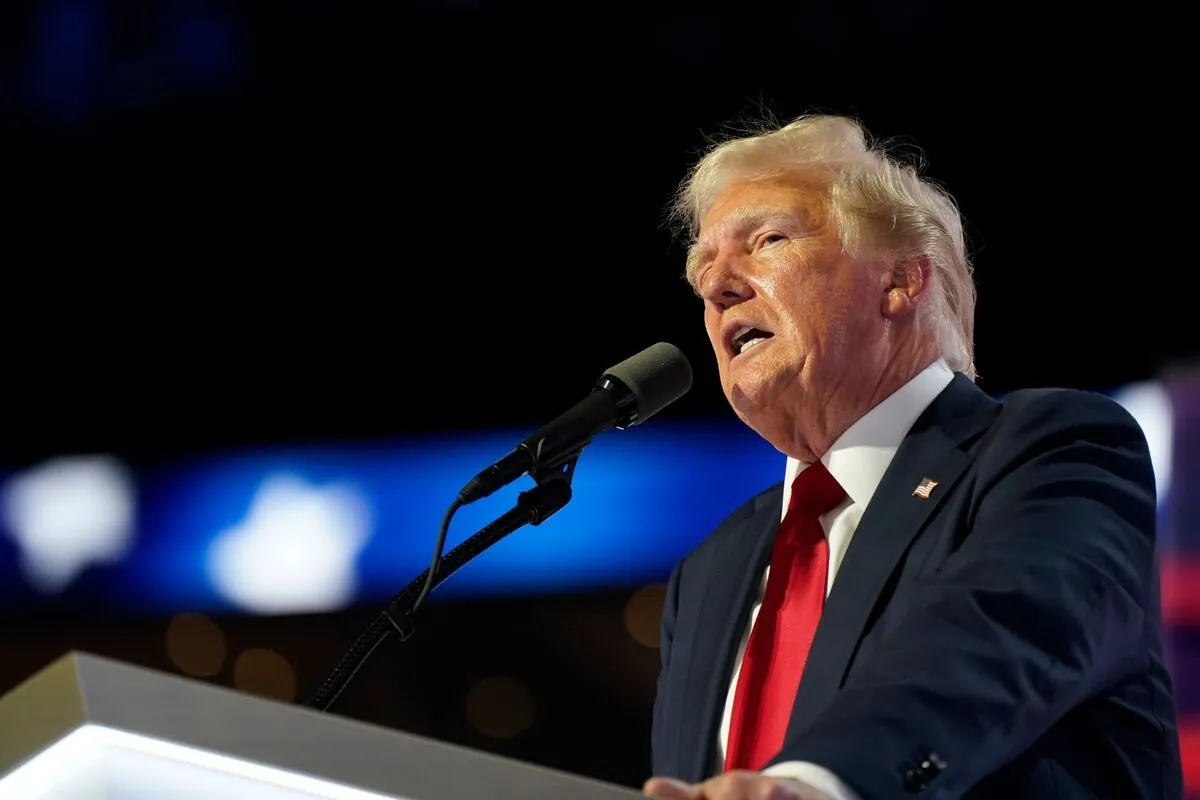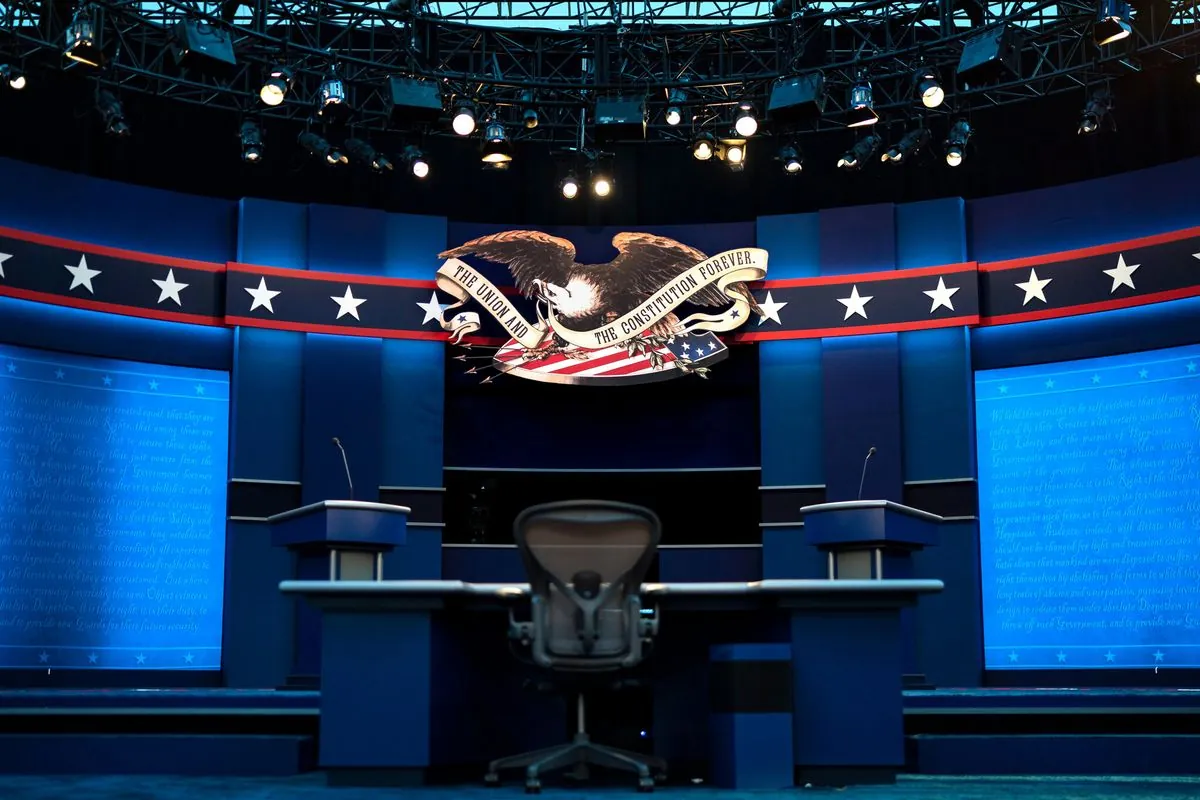Trump Announces Closed Mic Agreement for Upcoming Presidential Debate
Republican candidate Trump confirms closed microphone rules for Sept. 10 debate with Harris. Agreement mirrors June CNN debate format, emphasizing fairness and prohibiting notes.

In a recent development, Donald Trump, the Republican presidential candidate, has announced an agreement regarding the upcoming U.S. presidential debate scheduled for September 10, 2024. The arrangement, as stated by Trump, includes the use of closed microphones during the event, which will feature his Democratic rival, Vice President Kamala Harris.
This announcement comes amidst a backdrop of disagreements between the two campaigns over debate formats and rules. The presidential debates, a tradition since 1976, have often been subject to negotiations and controversies. In fact, the first televised presidential debate in U.S. history took place in 1960 between John F. Kennedy and Richard Nixon, setting a precedent for this crucial aspect of American electoral politics.
Trump's statement, made on August 27, 2024, outlined several key points about the debate:
- The format will mirror the June 2024 CNN debate with President Biden
- Candidates will stand during the debate
- Notes and "cheat sheets" are prohibited
- ABC has assured a "fair and equitable" debate
- Questions will not be provided in advance

The issue of microphone control has been a point of contention. While Trump's team had initially agreed to closed microphones, the Harris campaign expressed a preference for open microphones throughout the event. This disagreement reflects the ongoing evolution of debate formats, which have seen various changes since their inception. For instance, the "town hall" debate format was introduced in 1992, adding a new dimension to candidate interactions.
It's worth noting that microphone management can significantly impact debates. In 2020, due to the COVID-19 pandemic, one debate was held virtually for the first time, highlighting the importance of audio control in these high-stakes events. Additionally, the use of split-screen shots, which became common in the 2000s, has made candidates' reactions more visible to viewers even when they're not speaking.
The Trump campaign has also proposed an additional debate on September 4, 2024, to be hosted by Fox News. However, the Harris team has rejected this proposal. This situation is reminiscent of past debates where the inclusion or exclusion of candidates has led to controversy, such as in 1980 when independent candidate John Anderson was excluded from the debates.
As the debate approaches, both campaigns are likely to continue negotiations on various aspects of the event. The use of real-time fact-checking, which has been a topic of discussion in recent years, may also come into play. In 2012, moderator Candy Crowley's real-time fact-check of Mitt Romney caused significant controversy, demonstrating the potential impact of such interventions.
With the debate scheduled for September 10, 2024, both candidates will be preparing intensively. Historical precedents suggest that these events can have a significant influence on voter perceptions. The 2016 debate between Hillary Clinton and Donald Trump, for instance, became the most-watched debate in American history, underscoring the importance of these televised encounters in the electoral process.
"The Debate will be 'stand up,' and Candidates cannot bring notes, or 'cheat sheets.' We have also been given assurance by ABC that this will be a 'fair and equitable' Debate, and that neither side will be given the questions in advance."
As the campaigns continue to negotiate and prepare, the American public eagerly awaits this crucial event in the 2024 presidential race. The outcome of this debate could potentially shape the final months of the campaign, making it a pivotal moment in the electoral calendar.


































